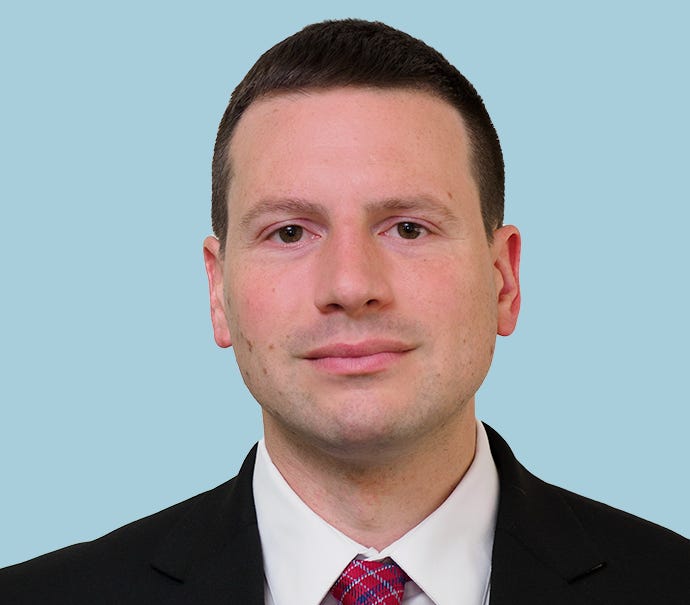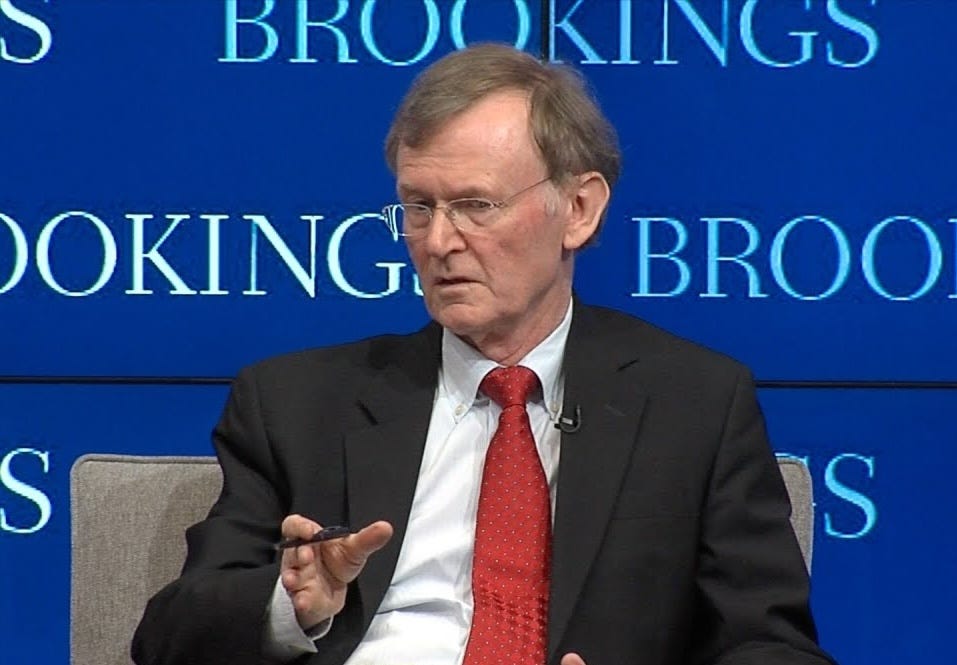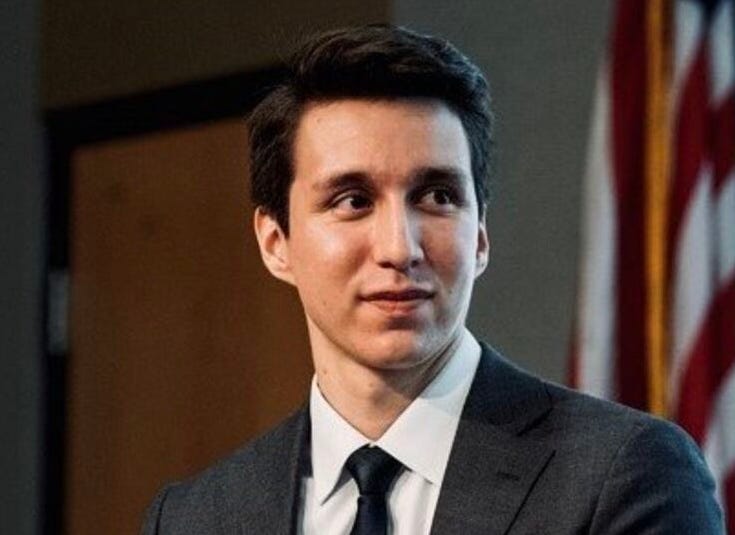Detail oriented
Freedom Conservatives offer practical policies, not performative outrage
Freedom Conservatives believe in a principled approach to politics and public policy. We said so right from the start.
“Authoritarianism is on the rise both at home and abroad,” we observed in the FreeCon Statement of Principles, published more than two years ago. “More and more people on the Left and Right reject the distinctive creed that made America great: that individual liberty is essential to the moral and physical strength of the nation.”
The principles affirmed in our statement — that free enterprise and civil society are essential to human flourishing, for example, and that power ought to be devolved from Washington to states, local communities, and households — are the building blocks of Freedom Conservatism.
But we also said from the start that the problems of the 21st century differ in important ways from those faced by earlier generations of conservatives. To apply America’s timeless principles to today‘s biggest challenges will require creativity, fortitude, and a firm grasp of policy detail.
Today we feature the work of FreeCons whose expertise serves our movement and our country well.
Cost of disorder
Neetu Arnold is an education policy analyst at the Manhattan Institute, a former research fellow at the National Association of Scholars, and a FreeCon signatory.
An advisor to the Network of enlightened Women, Arnold has written for such publications as The Wall Street Journal, UnHerd, and Tablet.
In a recent City Journal column, she explored the pervasive misbehavior and chaos in American classrooms and their effects on teacher attrition and student learning.
“It’s becoming clear that schools need to shift their focus from reducing exclusionary discipline to cracking down on classroom disorder,” Arnold wrote. “Research shows that exposure to disruptive peers can harm students’ long-term outcomes, and disordered classrooms contribute to teacher burnout and turnover.”
One culprit is the widespread adoption of a program called Positive Behavioral Interventions and Supports (PBIS). Originally developed for accommodating students with special needs, the model has been broadly implemented in ways that make classrooms harder, not easier, to manage.
States and districts should “explore alternatives to PBIS that take student accountability seriously, such as discipline policies that escalate consequences as conduct worsens,” she argued.
“This doesn’t mean returning to the excesses of zero tolerance but ensuring that punishments fit the offense and that consequences reflect the broader impact on peers.”
Penalizing investment
Jared Walczak is vice president of state projects at the Tax Foundation and a FreeCon signatory.
The lead researcher on the annual State Business Tax Climate Index and Location Matters reports, Walczak has also authored or coauthored tax reform guides for Alaska, Iowa, Kansas, Louisiana, Nevada, New York, Pennsylvania, South Carolina, West Virginia, and Wisconsin.
His work is regularly cited in The New York Times, The Wall Street Journal, The Washington Post, the Los Angeles Times, the Associated Press, and other prominent media outlets.
Walczak previously served as legislative director to a member of the Virginia Senate and as policy director for a statewide campaign.
In a recent post, he urges state policymakers to follow Washington’s lead and end the punitive tax treatment of business investment.
The reconciliation bill enacted by Congress this summer restored and made permanent the immediate deduction from taxable income of money invested in plants, equipment, research, and other capital assets.
These changes “make the corporate tax code more neutral and economically efficient,” Walczak wrote, so it “makes sense for states to align with them.”
Explaining how each state’s tax code is affected by the federal reforms, he recommended that legislatures respond as soon as possible, thus “enhancing the competitiveness of their own tax codes and reducing the tax system’s bias against investment and growth.”
Unleash the states
Stuart Butler is a scholar in residence in economic studies at the Brookings Institution and a FreeCon signatory.
Prior to joining Brookings, Butler spent 35 years at the Heritage Foundation as director of the Center for Policy Innovation and as vice president for domestic and economic policy studies.
A member of the editorial board of Health Affairs and the board of Briya Public Charter School, he previously served on the National Academy of Medicine’s Board on Health Care Services and as a health adviser to the Congressional Budget Office, among other roles.
In a recent article for JAMA Health Forum, Butler offered a strategy for freeing states to pursue innovative reforms of the Medicaid program.
“Congress and the Trump administration should be providing states with the maximum feasible discretion to find creative ways of ensuring coverage while slowing costs,” he wrote, proposing specific changes in federal law and the Medicaid waiver process.
“Health entitlement programs are steadily crowding out other domestic programs,” Butler pointed out. “Currently there is no consensus on what reforms are needed to avert disruptive future action. But states could experiment with a variety of strategies from which broad agreement may emerge.”
Chilling effect
Gil Guerra is an immigration policy analyst at the Niskanen Center, a contributing writer at The Dispatch, and a FreeCon signatory.
Named the 2024 Rising Expert in Latin America by Young Professionals in Foreign Policy, Guerra has completed fellowships at the Aspen Institute, Hudson Institute, and Hertog Foundation.
His writing is frequently published in outlets such as Foreign Policy and The Hill, and his insights have been cited by The Wall Street Journal, The Washington Post, Politico, the BBC, The Economist, and other media.
In a recent Dispatch article, Guerra explained in detail how the Trump administration is attempting to revoke visas for foreign students attending Harvard University.
There were 6,793 international students enrolled in Harvard during the 2024-25 school year, representing just over a quarter of the student body.
While the administration’s policy on revoking student visas “has been justified primarily as a consequence for Harvard’s negligent handling of anti-Israel protests on campus,” Guerra wrote, “the sweeping nature of the order means that at least 80 Israeli students at Harvard would potentially lose their visas and be subject to deportation if these changes come to pass.”
He also argued that the resulting “chilling effect on international student enrollment would harm American innovation in critical fields, as roughly 56% of international students pursue STEM degrees.”
“International scholars have won 40% of American Nobel prizes in science since 2000. Major tech companies rely on foreign-born talent, and international students have had a hand in founding major companies like Stripe, SpaceX, and SanDisk.”
In the mix
• In The Washington Post, FreeCon signatory Ramesh Ponnuru described the upcoming nuptials of Taylor Swift and Travis Kelce as “the ultimate capstone marriage.”
“Over the years, the view that it’s better to have varied romantic experiences, a developed career and economic stability before marriage has become ever more dominant,” wrote Ponnuru, editor of National Review and an American Enterprise Institute fellow. Such a “capstone marriage” is contrasted with “an older model of marriage that saw it as the ‘cornerstone’ of a good life instead: among the first bricks of adulthood instead of the last.”
“Our culture doesn’t need to abandon the capstone to make a little more room for the cornerstone. We could encourage smaller weddings for earlier marriages between two people who might not meet contemporary standards for being fully grown-up but who commit to growing up together.”
• In The Wall Street Journal, FreeCon signatory Jon Hartley described attempts by a labor union to compel payment from graduate students.
“The Stanford Graduate Workers Union wants my head on a plate because I refused to sign a membership form and pay dues,” wrote Hartley, who also works as a fellow for the Hoover Institution and other institutes. “I won’t fund an organization whose values and tactics I don’t support.”
“Freedom to dissent — including from union politics — is foundational to the academic enterprise. No student should face financial retaliation for exercising that freedom.”
• In the Kansas City Star, FreeCon signatory David Mastio responded to the narrow conception of American history presented by U.S. Sen. Eric Schmitt at last week’s National Conservatism Conference in Washington.
“America has always been a flawed nation,” wrote Mastio, a columnist for McClatchy newspapers. “We have sinned and suffered and struggled and, yes, died, but we have always triumphed. It is our flaws that make our story heroic. It is our flaws that make our triumphs majestic.”
“It is the fact that America could have turned away from history, but didn’t, that makes this the land of the free and the home of the brave.”
• In the Daily Caller, FreeCon signatory Andrea Picciotti-Bayer wrote that the deadly shootings in Minneapolis demonstrate why sacred spaces are worth defending.
“The young man who attacked Assumption Catholic Church was not merely ill,” wrote Picciotti-Bayer, director of the Conscience Project, but was “consumed by demons that thrive in isolation, despair, and anger.”
“Those same demons seek to sever the bonds that faith communities create, to scatter communities, to frighten people of faith out of gathering. That is why this moment of mourning must also become a moment of resolve. Restoring respect for sacred spaces is not just about religious liberty — it is about hope, healing, and the witness of faith itself.”




